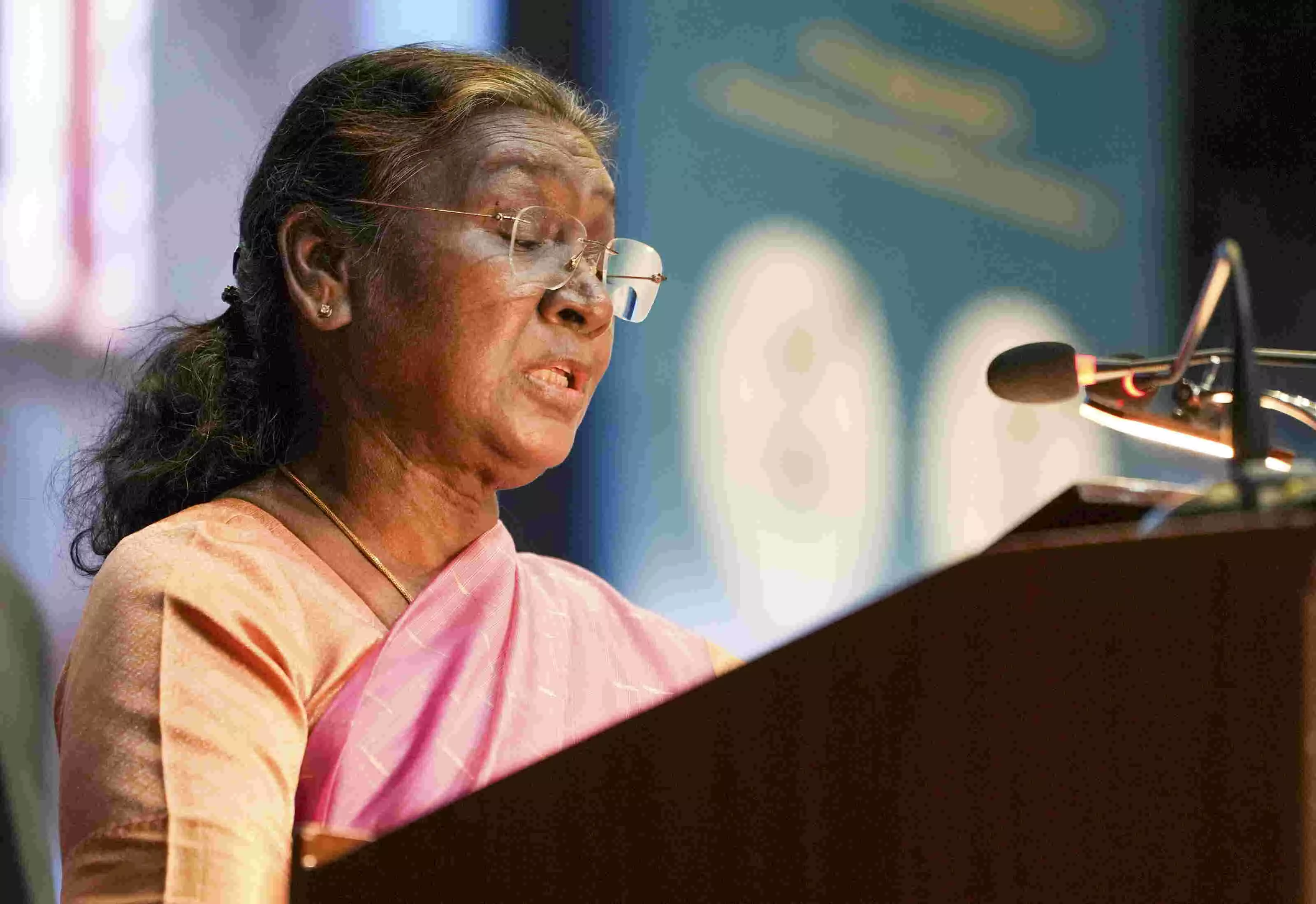Honouring distinction

The Padma Awards are one of India's most prestigious civilian honours. As the convention is, these awards were announced on the eve of Republic Day 2025 by President Draupadi Murmu. This year, a total of 139 individuals have been recognised for their exceptional contributions across various fields. The awards, as is well known, are divided into three categories—Padma Vibhushan for exceptional and distinguished service, Padma Bhushan for distinguished service of high order, and Padma Shri for distinguished service in any field.
Among the recipients are seven Padma Vibhushan awardees, 19 Padma Bhushan awardees, and 113 Padma Shri awardees. The list of last year included 5 Padma Vibhushan, 17 Padma Bhushan and 110 Padma Shri awardees—adding up to 132. Notably, this year’s list includes 23 women, ten individuals from the categories of foreigners, NRIs, PIOs, and OCIs, and 13 posthumous honourees. While the number of women recipients has dropped from 30 last year, there has been marginal increase in the categories of foreigners, NRIs, PIOs, and OCIs (from eight) and posthumous awardees (nine). The recognition, as usual, spans across diverse fields such as art, literature, education, medicine, science, public affairs, social work, and sports.
Justice (Retired) Jagdish Singh Khehar, former Chief Justice of India, has been awarded the Padma Vibhushan. He is remembered for his significant contributions to the judiciary, including his dissenting opinion in the Supreme Court’s verdict that outlawed triple talaq in 2017. The Padma Bhushan list also includes individuals such as economist Bibek Debroy, journalist A Surya Prakash, and writer Rambahadur Rai, remembered for their contributions to literature and education. Other recipients in this category include Vinod Dham, known as the father of the Pentium chip, and filmmaker Shekhar Kapur. Their work has had a lasting impact on their respective fields. The awards, in a way, is a mark of respect for the depth of talent and dedication that India has to offer. Lay hidden behind these awards are many inspiring stories as well. For instance, Libia Lobo Sardesai—a 100-year-old freedom fighter from Goa—has been recognised for her role in the liberation movement, including her work with an underground radio station during Portuguese rule. Gokul Chandra Dey, a Dhak player from West Bengal, has been honoured for breaking gender norms and training over 150 women in this traditionally male-dominated field. Sharda Sinha, Jatin Goswami, PR Sreejesh, Pankaj Udhas, Sushil Kumar Modi, Arundhati Bhattacharya and Arijit Singh are just a few other notable names who are to be honoured. Including all the names is beyond the ambit of this editorial, but contributions of all the awardees mean a lot for the nation.
Coming at a time when the nation is draped in colours of patriotism, the Padma Awards, instituted in 1954, are meant to recognise exceptional service in all fields of human endeavour, but more than that, they are also a mark of reverence on behalf of the nation, to those who have played (or are playing) an active role in nation building. From well-known personalities to unsung heroes, the awardees find their names echoing across the nation, for all the good reasons. Though not completely insulated from allegations of political influence, the nomination process is open to the public, and even self-nominations are accepted—meaning that there is always a scope for merit to come to the fore. While the Bharat Ratna remains the highest civilian award in India, the Padma Awards hold their own unique significance by honouring a wide spectrum of contributions. These awards remind us of the importance of service, innovation, and dedication in building a better society. As the recipients are celebrated at the Rashtrapati Bhavan in March or April, their stories will definitely serve as inspiration for millions—prompting nation-builders of the future to excel in their respective fields.



